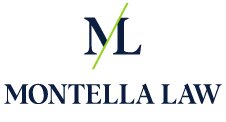Best Financial Services Regulation Lawyers in Italy
Share your needs with us, get contacted by law firms.
Free. Takes 2 min.
Or refine your search by selecting a city:
List of the best lawyers in Italy
About Financial Services Regulation Law in Italy
Financial services regulation in Italy is a complex area encompassing a range of laws, guidelines, and standards designed to govern the operations of financial institutions and protect consumers. It is primarily governed by the Bank of Italy and the Italian Securities and Exchange Commission (CONSOB). The regulatory framework aims to maintain the stability of the financial system, ensure fair competition, and protect investor interests. Italian regulations cover various aspects, including banking, insurance, securities, investment services, and payment institutions.
Why You May Need a Lawyer
There are several situations where legal advice in financial services regulation may be necessary. Individuals or businesses might require legal assistance to ensure compliance with complex regulatory requirements or when facing an investigation by regulatory bodies. Legal help may also be essential when structuring financial transactions, drafting contracts, or establishing new financial products. Additionally, if involved in disputes over financial services, or when dealing with issues related to consumer protection, a lawyer specializing in financial services regulation can offer invaluable guidance and support.
Local Laws Overview
Key aspects of local laws relevant to financial services regulation in Italy include:
- Bank of Italy Regulations: These include guidelines on banking supervision, capital adequacy, and risk management.
- CONSOB Regulations: These focus on the transparency of financial markets, protecting investors, and issuing regulations for securities and investment services.
- PSD2 (Payment Services Directive 2): Implemented to enhance payment services, open banking, and improve security measures.
- Anti-Money Laundering (AML) Regulations: Comprehensive measures to prevent money laundering and terrorist financing in the financial sector.
- Financial Products Regulation: This involves rules regarding the sale, distribution, and advertising of financial products.
Frequently Asked Questions
What is the role of the Bank of Italy in financial services regulation?
The Bank of Italy is responsible for supervising financial institutions to ensure stability and compliance with national and EU laws.
Is it mandatory for financial institutions in Italy to comply with EU regulations?
Yes, financial institutions in Italy must comply with both Italian laws and EU regulations applicable to the financial sector.
What are the consequences of non-compliance with financial regulations?
Non-compliance can lead to severe penalties, including fines, revocation of licenses, and even criminal charges for severe violations.
How can consumers protect themselves in financial transactions?
Consumers can protect themselves by verifying the licenses of financial institutions and seeking clarity on the terms of financial products and services.
What is open banking, and how does it affect consumers in Italy?
Open banking allows for the secure sharing of financial data with third-party providers to foster innovation and competition, benefiting consumers with more options.
Who regulates investments and securities in Italy?
Investments and securities are primarily regulated by CONSOB, ensuring transparency and investor protection.
What role does consumer protection play in financial services regulation?
Consumer protection is central, with various laws ensuring that consumers' rights and interests are safeguarded in financial dealings.
How are disputes in financial services typically resolved?
Disputes can be resolved through arbitration, mediation, or legal proceedings, depending on the nature of the conflict.
Why is compliance with AML regulations critical for financial institutions?
Compliance with AML regulations is crucial to prevent illicit activities, protect the integrity of the financial system, and avoid severe legal penalties.
Are there incentives for financial innovation and fintech in Italy?
Yes, Italy promotes financial innovation with supportive regulations and initiatives aimed at fostering the growth of fintech solutions.
Additional Resources
Useful resources for someone seeking assistance in financial services regulation include:
- Bank of Italy: The central bank overseeing banking institutions and financial stability.
- CONSOB: The regulatory authority for the securities market and investor protection.
- Ministry of Economy and Finance (MEF): Provides guidelines and policies related to financial services regulation.
- European Banking Authority (EBA): Offers comprehensive guidelines and standards affecting EU member states, including Italy.
Next Steps
If you need legal assistance in financial services regulation, consider these steps:
- Identify Your Needs: Determine the specific area of assistance required, whether compliance, dispute resolution, contract drafting, etc.
- Research Qualified Lawyers: Look for lawyers or law firms specializing in financial services regulation in Italy with relevant experience.
- Schedule Consultation: Arrange a meeting with a potential lawyer to discuss your situation and gain initial advice.
- Review Legal Assistance Options: Evaluate the lawyer's plan or strategy and understand the associated costs and timelines.
- Engage Legal Services: Proceed with engaging the lawyer if satisfied with their credentials and initial guidance.
Lawzana helps you find the best lawyers and law firms in Italy through a curated and pre-screened list of qualified legal professionals. Our platform offers rankings and detailed profiles of attorneys and law firms, allowing you to compare based on practice areas, including Financial Services Regulation, experience, and client feedback.
Each profile includes a description of the firm's areas of practice, client reviews, team members and partners, year of establishment, spoken languages, office locations, contact information, social media presence, and any published articles or resources. Most firms on our platform speak English and are experienced in both local and international legal matters.
Get a quote from top-rated law firms in Italy — quickly, securely, and without unnecessary hassle.
Disclaimer:
The information provided on this page is for general informational purposes only and does not constitute legal advice. While we strive to ensure the accuracy and relevance of the content, legal information may change over time, and interpretations of the law can vary. You should always consult with a qualified legal professional for advice specific to your situation.
We disclaim all liability for actions taken or not taken based on the content of this page. If you believe any information is incorrect or outdated, please contact us, and we will review and update it where appropriate.
Browse financial services regulation law firms by city in Italy
Refine your search by selecting a city.

















